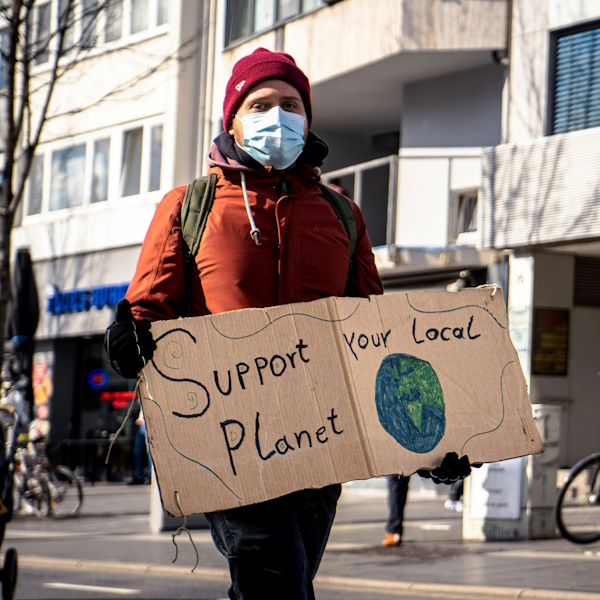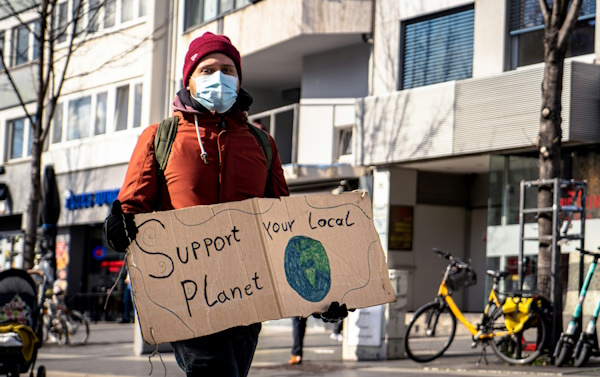Eco-Friendly Labels: Boosting Sustainability and Consumer Trust
In today's world, where sustainability is more than just a buzzword, eco-friendly labels have become a beacon for conscious consumers like you. They're not just stickers on a product; they represent a commitment to the planet and a step towards a greener future.
Navigating the sea of products claiming to be green can be overwhelming. That's where eco-friendly labels come in, offering a clear, credible way to identify genuinely sustainable products. They're your guide to making informed choices that align with your values, ensuring that every purchase contributes to a healthier planet.
What are Eco-Friendly Labels?
When you're on the lookout for products that won't harm the planet, eco-friendly labels are your go-to indicators. But what exactly are these labels? In essence, eco-friendly labels are certifications or marks assigned to products and services that have a reduced impact on the environment. These labels can cover a wide range of criteria, including the materials used, the manufacturing process, distribution, and recyclability. They're designed to be easily recognizable, helping you make more sustainable choices with confidence.
Key Aspects of Eco-Friendly Labels:
- Sustainability: Products with these labels are often made using sustainable materials or practices, ensuring minimal environmental damage.
- Recyclability: Many eco-friendly labeled products are either made from recycled materials or are fully recyclable themselves.
- Green Manufacturing: This involves reducing pollutant outputs, conserving energy, and minimizing waste during the production process.
- Certification: There are several organizations globally that certify products as eco-friendly, such as the Global Organic Textile Standard (GOTS) for clothing or the Forest Stewardship Council (FSC) for paper products.
Understanding these labels involves recognizing the various certifications and what they stand for. It's not just about whether a product is "green" but how its lifecycle and production process contribute to environmental sustainability. Being informed means you're not only contributing to a healthier planet but also supporting companies and practices that prioritize the future of our environment.
Navigating through the array of eco-friendly labels can be a challenge, but knowing the most reputable and widespread certifications can guide your choices. Whether it's for household goods, clothing, or food products, each label serves as a pledge towards a greener, more sustainable future.
Benefits of Using Eco-Friendly Labels
Eco-friendly labels are more than just symbols on packaging; they're key players in promoting sustainability and environmentally conscious behaviors. When you choose products with these labels, you're not only making a choice that's better for the environment, but you're also supporting companies that prioritize sustainability. Here’s why opting for eco-friendly labeled products is a choice you'll want to stick with.
Increase in Consumer Trust
Consumers today are more informed and conscious about their purchases than ever before. Eco-friendly labels act as a beacon of trust and transparency between you and the product you choose. They assure you that what you're buying meets stringent environmental and ethical standards. This increased trust isn't just beneficial for you; it's a competitive advantage for businesses that commit to these practices.
Positive Environmental Impact
Every time you purchase a product with an eco-friendly label, you're contributing to a larger, global effort to reduce environmental harm. These products have a significantly lower impact on the environment, thanks to their sustainable sourcing, manufacturing, and disposal processes. For instance, products with reduced packaging materials or those made from recycled content help minimize waste and conserve natural resources.
Supporting Green Innovation
Opting for products with eco-friendly labels does more than send a message about your personal values. It also encourages companies to invest in green technologies and sustainable practices. This cycle of support fuels innovation in sustainable product development, leading to more eco-friendly options across all types of consumer goods.
Enhanced Product Quality
Interestingly, products that carry eco-friendly labels often boast higher quality. This is because the standards for eco-certification typically include not only environmental but also quality criteria. Manufacturers of these products tend to pay closer attention to detail and opt for materials and processes that extend the life of their products, providing you with better value for your money.
By understanding and prioritizing eco-friendly labels in your purchasing habits, you’re not just making a choice that benefits you. You're part of a growing wave of conscious consumers driving the demand for sustainable products, helping pave the way for a healthier planet for future generations.
Types of Eco-Friendly Labels
When you're browsing the shelves for sustainable products, knowing the different types of eco-friendly labels can greatly enhance your shopping experience. These labels are not just about marketing; they're a testament to the product's commitment to environmental sustainability. Here, we'll dive into some of the most recognizable and trustworthy labels you should look out for.
Energy Star is a label you've likely seen on electronics and appliances. Products bearing this label meet stringent energy efficiency guidelines set by the U.S. Environmental Protection Agency (EPA). An Energy Star label means the product uses less energy and helps reduce greenhouse gas emissions, ultimately saving you money on utility bills.
The USDA Organic seal is critical for those who prioritize organic products. This certification ensures that food or other agricultural products are produced through approved methods that integrate cultural, biological, and mechanical practices. These practices foster cycling of resources, promote ecological balance, and conserve biodiversity. Foods with this label are guaranteed to have no synthetic fertilizers, sewage sludge, irradiation, or genetic engineering.
Fair Trade Certified products go beyond environmental sustainability. This certification signifies that the product was made with respect to people and the planet. Fair Trade ensures fair wages, safe working conditions, and environmental sustainability. When you purchase Fair Trade Certified goods, you're supporting a healthier planet and better conditions for workers.
The Forest Stewardship Council (FSC) label is your assurance that wood products come from forests that are managed responsibly. FSC certification is globally recognized and covers a rigorous set of criteria including maintaining biodiversity, water resources, and forest workers’ rights. Opting for FSC-certified products helps prevent deforestation, promotes responsible forestry, and conserves wildlife habitats.
Understanding these labels will help you make more informed decisions and support practices that are beneficial for the environment. Look for them on your next shopping trip and contribute to a greener, more sustainable world.
How to Identify Genuine Eco-Friendly Labels
In the journey towards a more sustainable lifestyle, understanding how to identify genuine eco-friendly labels is crucial. With a plethora of products claiming green credentials, it’s essential to discern the authentic from the misleading. This section will guide you through key steps and tips to ensure you’re making truly environmentally-friendly choices.
Firstly, look for third-party certifications. Genuine eco-friendly labels are often backed by reputable third-party organizations that verify a product’s environmental claims. Some prominent certifications include Energy Star, USDA Organic, Fair Trade Certified, and Forest Stewardship Council (FSC). Products sporting these labels have met stringent environmental and ethical standards, making them reliable choices.
Next, examine the label’s specificity. Authentic eco-friendly products provide specific information about their sustainable aspects. Instead of vague claims like "green" or "eco-conscious", look for detailed information such as "made with 100% recycled materials" or "biodegradable packaging". Specificity signifies transparency and a higher likelihood of genuine sustainability.
Additionally, do your research. Sometimes, all it takes is a quick internet search to verify the veracity of an eco-label. Many certification bodies have online databases or lists of certified products and companies. By checking these resources, you can ensure you’re supporting genuinely sustainable practices.
Finally, be wary of greenwashing. Some products might boast eco-friendly labels without the certifications or specific details to back them up. Learning to recognize greenwashing tactics is a key proficiency in identifying authentic eco-friendly products. If a claim seems too good to be true, it probably is.
By adhering to these guidelines, you can navigate the complex landscape of eco-friendly labels with confidence. Knowing how to identify genuine eco-friendly labels empowers you to make informed decisions that align with your sustainability goals, ensuring your choices have a positive impact on the planet.
The Impact of Eco-Friendly Labels on Consumer Behavior
Eco-friendly labels don't just signify a product's environmentally conscious attributes; they wield the power to significantly influence consumer behavior. When you see a product bearing an eco-certification mark, it creates a ripple effect in your purchasing decisions. Studies show that a considerable percentage of consumers are willing to pay more for sustainable products.
- Trust and Credibility: Eco-certifications increase the perceived trustworthiness of a product. When you recognize a label from a reputable third-party organization, you're more likely to believe in the product's sustainable claims.
- Brand Loyalty: Products with environmental certifications tend to foster stronger brand loyalty among consumers. Knowing that a brand consistently follows sustainable practices makes you more likely to stick with it.
- Preference Shift: As awareness about environmental issues grows, there's a noticeable shift towards eco-friendly products. Labels act as a shortcut in making more conscious choices.
| Consumer Preference | Impact |
|---|---|
| Increased Awareness | Shift towards eco-friendly goods |
| Trust in Eco-Labels | Higher willingness to pay |
| Brand Loyalty | Repeated purchases of green products |
Eco-labels also play a critical role in educating consumers. They serve as a tool to spread awareness about sustainability issues and what constitutes a genuinely eco-friendly product. This educational aspect is crucial, as it empowers consumers to make informed choices beyond just the immediate appeal of eco-labels.
The influence of eco-friendly labels extends to boosting market competition among brands. As more consumers demand sustainable products, companies are motivated to innovate and improve their environmental credentials. This not only leads to a wider availability of green options but ensures products are continually improving in quality and sustainability standards.
Recognizing the impact of eco-friendly labels on your behavior and choices is the first step towards contributing to a more sustainable world. Every purchase decision influenced by a genuine eco-label contributes to a larger movement towards environmental responsibility and sustainability.
Conclusion
Understanding the power of eco-friendly labels is essential for both consumers and brands aiming to make a positive impact on our planet. By choosing products with these labels, you're not just making a purchase; you're casting a vote for sustainability and encouraging companies to prioritize the environment. Brands, on the other hand, benefit from adopting eco-friendly practices by building trust and loyalty among their customer base, which can lead to increased sales and a competitive edge. It's a win-win situation where your choices contribute to a larger movement towards a sustainable future. Let's embrace eco-friendly labels and make informed decisions that benefit both us and the environment.







